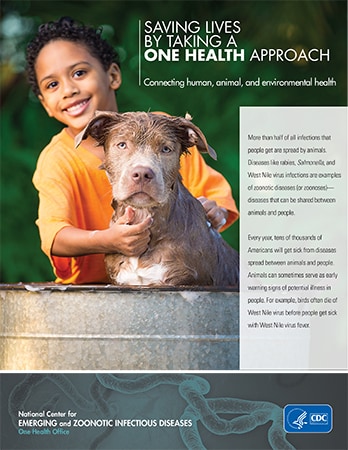Recommended Ideas For Choosing Pet Wellbeing
Wiki Article
What Are The Most Frequent Animal Health Issues?
The medical conditions of animals differ depending on the species, age as well as the overall health of an individual animal. The most frequent medical issues that animals face are:
Infections caused by parasites like ticks, fleas or mites are the root source of a variety of health issues in animals. Parasite prevention and regular check-ups are crucial. Skin Conditions. Skin conditions like dermatitis, allergies, and hotspots can cause discomfort and irritation to pets.
Ear infections are quite common most often in cats and dogs with floppy ears. They can lead to hearing loss and discomfort.
Dental problems can be detrimental to an animal. Periodontal disease, gum infection as well as tooth decay are just a few dental problems that can affect the overall health of an animal.
Respiratory Infections The upper respiratory infections such as pneumonia and bronchitis are common in animals, especially those living in stressful or overcrowded environments.
Joint and Arthritis Problems Senior animals, as well with some breeds that are large, are susceptible to joint problems and arthritis which may cause the loss of mobility and pain.
Obesity. Overweight animals may be susceptible to a variety of ailments, including joint disease, diabetes, and heart diseases.
Gastrointestinal Issues: The vomiting, diarrhea, and other digestive problems could be the result of dietary issues as well as infections or underlying conditions.
Cancer - Like animals, animals may develop cancerous tumors that may require treatment including chemotherapy, radiation or surgery.
Early detection and prevention of injuries and wounds is vital to the health and welfare of animals. Regularly scheduled veterinary exams as well as vaccinations for parasites and a balanced diet will help prevent these medical conditions. Additionally, you should seek medical attention if your pet is showing any signs of illness or discomfort. Take a look at the best pet memory support supplements for blog advice.

What Are The Best Supplements, Probiotics, And Supplements For Dogs To Feed Them?
It is important to consider your dog's specific needs and the recommendations from a veterinarian before deciding on vitamins, probiotics or supplements. It is crucial to feed your dog a balanced and nutritious diet certain breeds may need additional supplements. Here are a few of the most popular supplements for dogs and the benefits they bring.
Multivitamins: A high-quality food for dogs should contain most of the minerals and vitamins your dog needs. Multivitamins can be beneficial when your dog requires additional assistance or has restrictions on his diet. It is important to ensure that the multivitamin is designed for canines. Certain vitamins could be toxic if taken in excess. Omega-3 Fatty Acids: Omega-3 fats, like flaxseed or fish oil are beneficial for coat, skin as well as joints. They also help reduce inflammation. Dogs with allergies, skin issues, or arthritis are often advised to consume them.
Probiotics: Probiotics have beneficial bacteria that improve digestion health and ensure a healthy gut microbiome. They are utilized to treat digestive issues such as diarrhea, and to improve the immune system.
Glucosamine & Chondroitin - These two supplements are able to reduce symptoms of arthritis and support joints in dogs.
It is crucial to speak to your vet before giving any supplements to your dog. Your veterinarian can give you suggestions that are tailored to your dog’s needs and conditions. Dosages can vary based on factors like your dog's size, age, and health condition and over-supplementation could be harmful. It is important to select supplements made by reputable firms as the quality and safety can differ. Always adhere to the dosage instructions and look out for adverse reactions. Contact your veterinarian immediately if you observe any abnormal signs or reactions. A well-balanced and veterinarian-recommended diet is typically the best way to meet your dog's nutritional needs, and supplements should only be used when necessary and under professional guidance. Take a look at the Best pet herbal supplements for weaning puppies for site tips.

How Prevalent Are Kidney Failure, Skin Allergies, As Well As Yeast Infections In Dogs? What Treatment?
There are a variety of diseases that can be affecting your dog, such as skin allergies and yeast infections. They can be severe or mild depending on breed, age, and overall health. This article will provide a brief overview of the conditions that can cause them, as well as their frequency and possible treatment.
Yeast Infections Prevalence The presence of yeast infections is quite prevalent in dogs, and are particularly in areas where there are skin folds. These infections may be more frequent in breeds such as Bulldogs or Shar-Peis, which have skin folds.
The symptoms include itching, redness, foul odor, and discharge. Ear infections can lead to headache pain or head shakes.
Treatment: The treatment entails fixing the root cause for the problem, like allergies or skin folds, using antifungal creams and topical treatments in certain cases, oral antifungal agents. It is essential to keep an excellent hygiene.
Although these ailments are prevalent for canines, they do not necessarily affect every dog. Furthermore, the severity of these conditions can differ according to breed and. Regular veterinary visits as well as a healthy diet along with preventative measures such as flea control and a clean environment can assist in reducing this risk. Contact your vet if you think your dog is suffering from any medical issue that could be causing kidney issues, skin allergies or yeast infections. A veterinarian can offer an accurate diagnosis and a tailored treatment plan. Early intervention can enhance your pet's quality of life and lead to better outcomes. Check out the best pet herbal supplements for small dogs for site advice.
